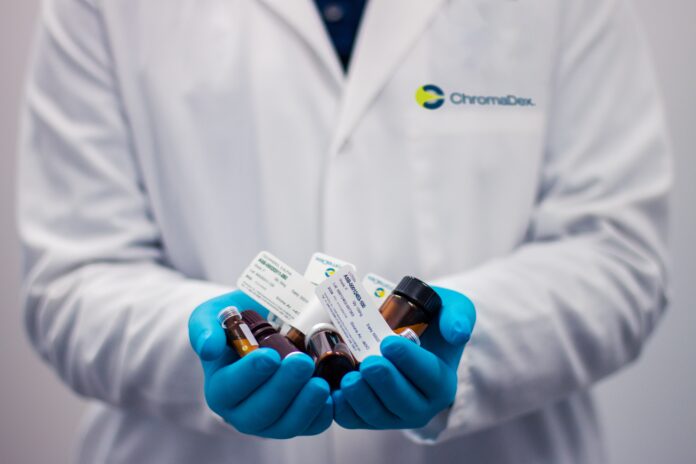By Study.com
Published in Study.com
Jan 08, 2021
What Do Pharmacists Do?
Pharmacists are responsible for dispensing controlled medication to patients in the proper doses and explaining how and when to use these medications. They may also discuss possible drug interactions with patients to ensure they use the prescription responsibly. At many pharmacies, pharmacists will also give flu shots and provide other immunization services. Pharmacists might also offer advice on nutrition, exercise, stress management and other general health issues, sometimes pointing customers to over-the-counter medications that might treat their symptoms.
Pharmacists might work in a number of different environments. Some work in dedicated pharmacies, often attached to clinics. Others work in hospitals, outpatient centers, or merchandising stores. Rehabilitation and assisted living facilities, warehousing and storage, and specialty services are also common work environments for pharmacists. Most of the time, pharmacists work on their feet, organizing and distributing medication as needed. Their work is of the utmost importance, as any mistakes made can result in serious harm to patients if they do not receive the correct medications.
What Are the Pharmacist Education Requirements?
Undergraduate Pharmacist Education
You might be wondering, what degree do you need to be a pharmacist? Pharmacist requirements begin at the undergraduate level. There is no set-in-stone undergraduate degree for pharmacists. To get into a post-graduate pharmacy school, candidates will need at least a 2-year degree (though most will benefit from a bachelor’s degree). Students interested in the pharmacist education needed might want to take undergraduate coursework in topics like:
- Physics
- Chemistry
- Biology
- Anatomy
In some cases, an undergraduate degree is sufficient pharmacist entry level education for assistant roles in pharmacy. The level of education for pharmacist jobs will vary when the actual requirements of the position and the individual’s work experience are taken into account.
Doctor of Pharmacy Degree
After obtaining an undergraduate and graduate degree, pharmacist schooling continues at the graduate level. Pharmacist degree requirements include earning a Doctor of Pharmacy (often called a Pharm.D.). This is the final degree needed to be a pharmacist. A Pharm.D. is a professional degree that typically takes 4 years to complete (though some schools offer a 3-year option). These degree programs cover the science behind medicine, the technical aspects of managing prescriptions and the ins and outs of patient care. Most will have coursework that delves into subjects like:
- Drug absorption rates
- Toxicology
- Pathophysiology
- Biopharmaceuticals
- Pharmacy ethics and law
- Medicinal chemistry
While pharmacist qualifications are extensive, they are still less than the training that doctors receive, generally speaking.
Internships, Residencies and Further Training
Some pharmacist job requirements will mean that students need to do internships and other supervised work experiences while they are in school. These experiences help prospective pharmacists get a feel for what the career will be like. In addition, some special pharmacies may require students to complete a residency that lasts for 1-2 years. Pharmacists who want to run their own pharmacy might also look into a Master of Business Administration.
Pharmacists work in an ever-evolving profession, so they must also attend continuing education throughout their careers.
Becoming a Licensed Pharmacist
Every state in the country requires pharmacists to get a license. After they’ve graduated with a Pharm.D. degree, aspiring pharmacists must pass two exams. The Multistate Pharmacy Jurisprudence Exam covers pharmacy law, and the North American Pharmacist Licensure Exam tests the graduate’s knowledge and skills in the field. States often have additional requirements as well, including a certain number of internship hours. Pharmacists who give shots and immunizations may also need to acquire additional certification from the American Pharmacists Association.
What’s the Career Outlook for a Pharmacist?
Pharmacists work full-time and most are expected to work odd or extended hours as the job demands it, but they are generally well-compensated. An aging population and rising rates of chronic diseases are expected to contribute to a growth in jobs in the pharmacy field. Between 2019 and 2029, the BLS projects a growth rate of 10%, which is much faster than the national average for all jobs.
Becoming a pharmacist involves extensive education and training. However, it is a lucrative profession that can be highly beneficial to the general public, making it a rewarding choice. Pharmacists need good attention to detail, an understanding of medicine and pharmacology, and good customer service skills.
Source: https://study.com/articles/Pharmacist_Educational_Requirements_and_Career_Summary.html
Image Source: Unsplash.com
Analysis:
This article was a good overview of much I did not know about the ins and outs of the role of pharmacists. I found it insightful to read how much education pharmacists need, as well as what they specifically specialize in. It seems that there is a lack of public awareness as to the value of pharmacists as experts in public health.




